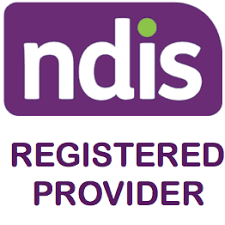Definition of SCD
According to the Diagnostic and Statistical Manual of Mental Disorders (DSM-V), Social (pragmatic) Communication Disorder is characterised by persistent difficulties in the social use of verbal and nonverbal communication as manifested by all of the following:
1. Deficits in using communication for social purposes, such as greeting and sharing information, in a manner that is appropriate for social context.
2. Impairment in the ability to change communication to match context or the needs of the listener, such as speaking differently in a classroom than on a playground, talking differently to a child than to an adult, and avoiding use of overly formal language.
3. Difficulties following rules for conversation and storytelling, such as taking turns in conversation, rephrasing when misunderstood, and knowing how to use verbal and nonverbal signals to regulate interaction.
4. Difficulties understanding what is not explicitly stated (e.g., making inferences) and nonliteral or ambiguous meaning of language (e.g., idioms, humor, metaphors, multiple meanings that depend on the context for interpretation).
(American Psychiatric Association, 2013).
Causes of SCD
Causes of social (pragmatic) communication disorder are not clearly known however it is sometimes associated with other conditions such as attention-deficit hyperactivity disorder (ADHD), autism, and other disorders such as language disorders, dementia, hearing loss and traumatic brain injury.
Types of SCD
Although social (pragmatic) communication disorder may not have defined differentiated types or categories, it can be described as one of the Communication Disorders that affect verbal and nonverbal inability to socialize. They may include language disorders where the affected person is not able to understand or use the correct words or signs in a specific conversation context.
Symptoms of SCD
Some of the general symptoms of social (pragmatic) communication disorder include but are not limited to:
- Challenges using suitable greetings.
- Inability to change a communication style or language to suit the current conversation.
- Difficulty in telling and understanding stories.
- Challenges initiating, joining or participating in a conversation
- Difficulty in maintaining the topic, or discussion or not waiting for an appropriate turn to speak or taking turns in a conversation or even providing appropriate responses in a conversation.
- Inability to repair a communication breakdown, for example, the affected person may not even try to rephrase a sentence or what they said if they were misunderstood.
- Inability to show or pick social cues such as facial expressions or signs from others and to interpret them suitably.
- Someone who is affected may not be able to get a joke or understand sarcasm in a social setting.
- They may not be able to understand information unless that information is explicitly stated.
- An affected persons inability to make and keep close friendships or relationships.
- Inability to provide background information or try to make people understand a concept when having a conversation with unfamiliar people or those who may not be familiar with the topic of discussion.
(APA, 2013; ASHA, n.d.; Mandy et al., 2017 & Swineford et al., 2014)
References
American Psychiatric Association (2013). Diagnostic and Statistical Manual of Mental Disorders (5th ed.).
Arlington, VA: American Psychiatric Association.
American Speech-Language-Hearing Association (n.d.). Social Communication Disorder. ASHA.
Mandy, W., Wang, A., Lee, I., Skuse, D. (2017). Evaluating Social (Pragmatic) Communication Disorder. Journal of Child Psychology and Psychiatry, 58(10), 1166-1175.
Swineford, L.B., Thurm, A., Baird, G. et al. (2014). Social (Pragmatic) Communication Disorder: A Research Review of This New DSM-5 Diagnostic Category. Journal of Neurodevelopmental Disorders, 6, 41



